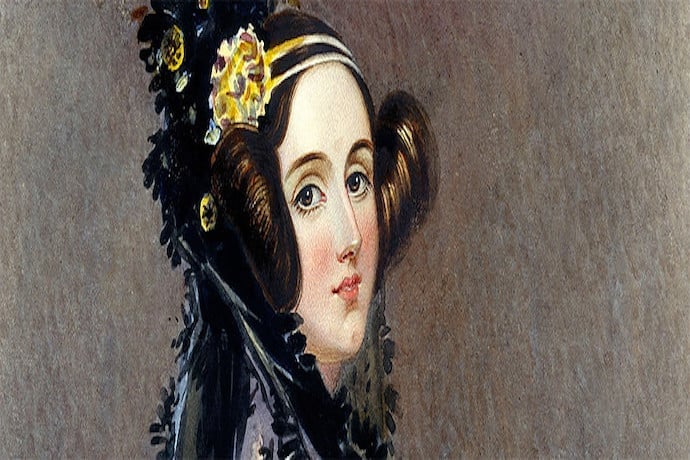Who do you think was the first-ever computer programmer, and when did they invent programming? Perhaps it was Bill Gates, the inventor of the Windows operating system. Or perhaps it was Steve Jobs, who founded Apple. These are good guesses, but the actual first-ever programmer appeared about a hundred years before either of those two rose to fame!
This is the story of a lady called Ada Lovelace, who lived from December 10, 1815 to November 27, 1852. Ada was a very smart lady, and she could do mathematics really well. Unfortunately, she lived in a time where the world believed that men were better at women at mathematic by default, so she didn’t get the recognition she deserved at first.
Fortunately, she didn’t give up. In fact, during her teenage years, she met with a man named Charles Babbage. You may remember him from a few issues back; he’s the one that invented the Difference Engine and the Analytical Engine. And Ada Lovelace met Babbage while he was inventing the latter.
She was really impressed by what Babbage had done, so she decided to help him. In 1840, Babbage gave a presentation to an audience about the Analytical Engine, which a translator translated into a French transcript. Ada helped Babbage out by then translating this French script back into English, so English-speaking people could understand it.
The thing is, as Ada began translating the script, she began adding her own notes on what was going on. When she had finished the job, her notes were three times as long as Babbage’s own speech!
Babbage was really impressed with Ada’s notes. After all, the facts she added proved that she knew what the Analytical Engine was capable of. In fact, in her notes, Ada proposed a sequence which would allow the Analytical Engine to calculate Bernoulli Numbers.
Bernoulli Numbers are calculated through a really complex equation, so it can be difficult for humans to work them out. However, Ada had proposed a sequence that would allow a computer to do all the hard work so humans didn’t have to work so hard.
Unfortunately, Babbage never managed to finish the Analytical Engine, so Ada’s sequence was never actually used. However, we know that if Babbage had finished the Engine, Ada’s notes would have worked. As such, we can say that Ada’s sequence was the first ever sequence of instructions for a computer…or as we like to call it, “code.”
So there you go. While the first-ever programmer didn’t make something as exciting as Windows or Apple, they did achieve a lot with the very limited technology they had in the 19th Century. Who knows what history would have looked like if Babbage did complete his Analytical Engine and Ada got to show off her code?
Learn More
Ada Lovelace
https://www.mentalfloss.com/article/53131/ada-lovelace-first-computer-programmer
Who is Ada Lovelace?
https://en.wikipedia.org/wiki/Ada_Lovelace
Bernoulli Numbers
https://www.sciencedirect.com/topics/mathematics/bernoulli-number
Ada Lovelace
https://www.biography.com/scholar/ada-lovelace
Women in Science: Ada Lovelace
https://www.sdsc.edu/ScienceWomen/lovelace.html
Things You May Not Know About Ada Lovelace
https://www.youtube.com/watch?v=J7ITqnEmf-g
Things You May Not Know About Ada Lovelace
https://www.history.com/news/10-things-you-may-not-know-about-ada-lovelace
Ada Lovelace
https://kids.nationalgeographic.com/history/article/ada-lovelace
Ada Lovelace Institute
https://www.adalovelaceinstitute.org/our-work/themes/
Spotlight On Ada Lovelace
https://thinkeryaustin.org/blog/steamspotlight-ada-lovelace/
Ada Lovelace Notes to Charles Babbage
https://lynx-open-ed.org/node/356
Ada Lovelace Books
https://www.amazon.com/ada-lovelace-Books/s?k=ada+lovelace&rh=n%3A283155

